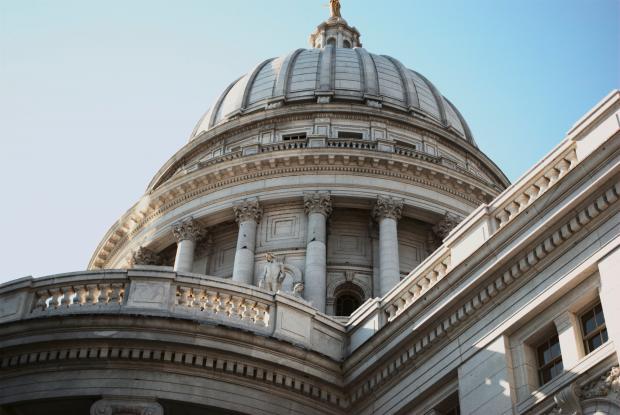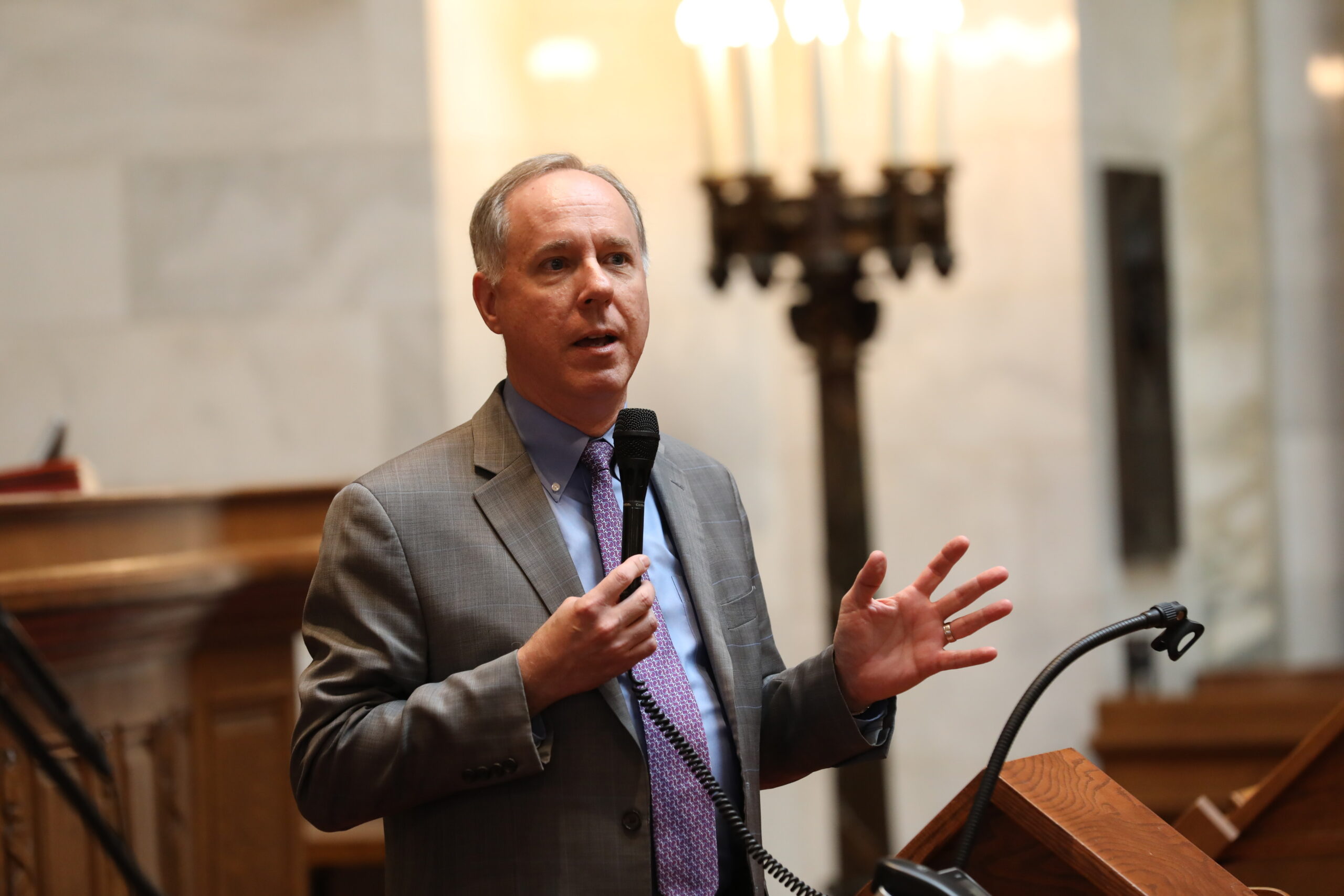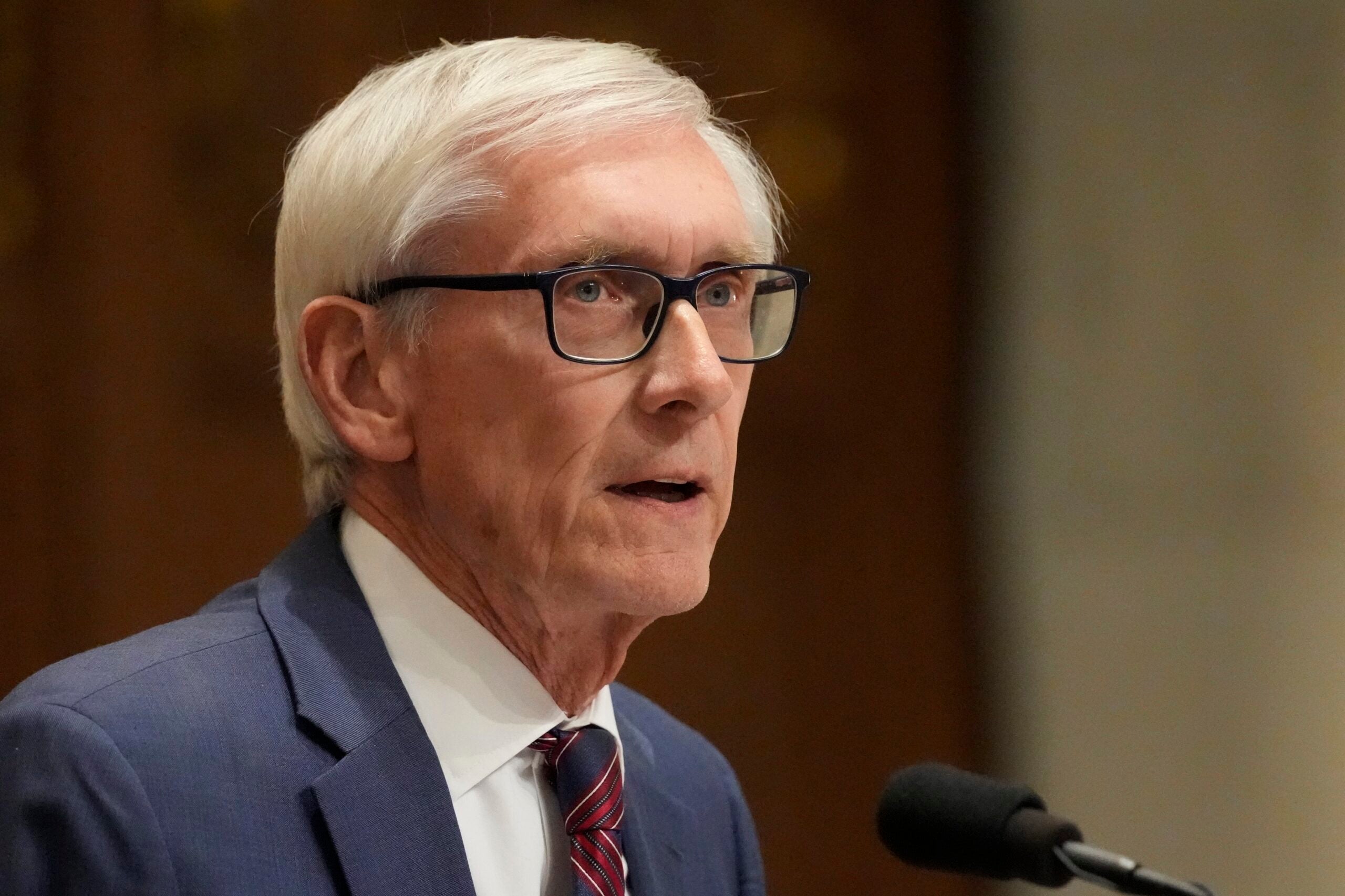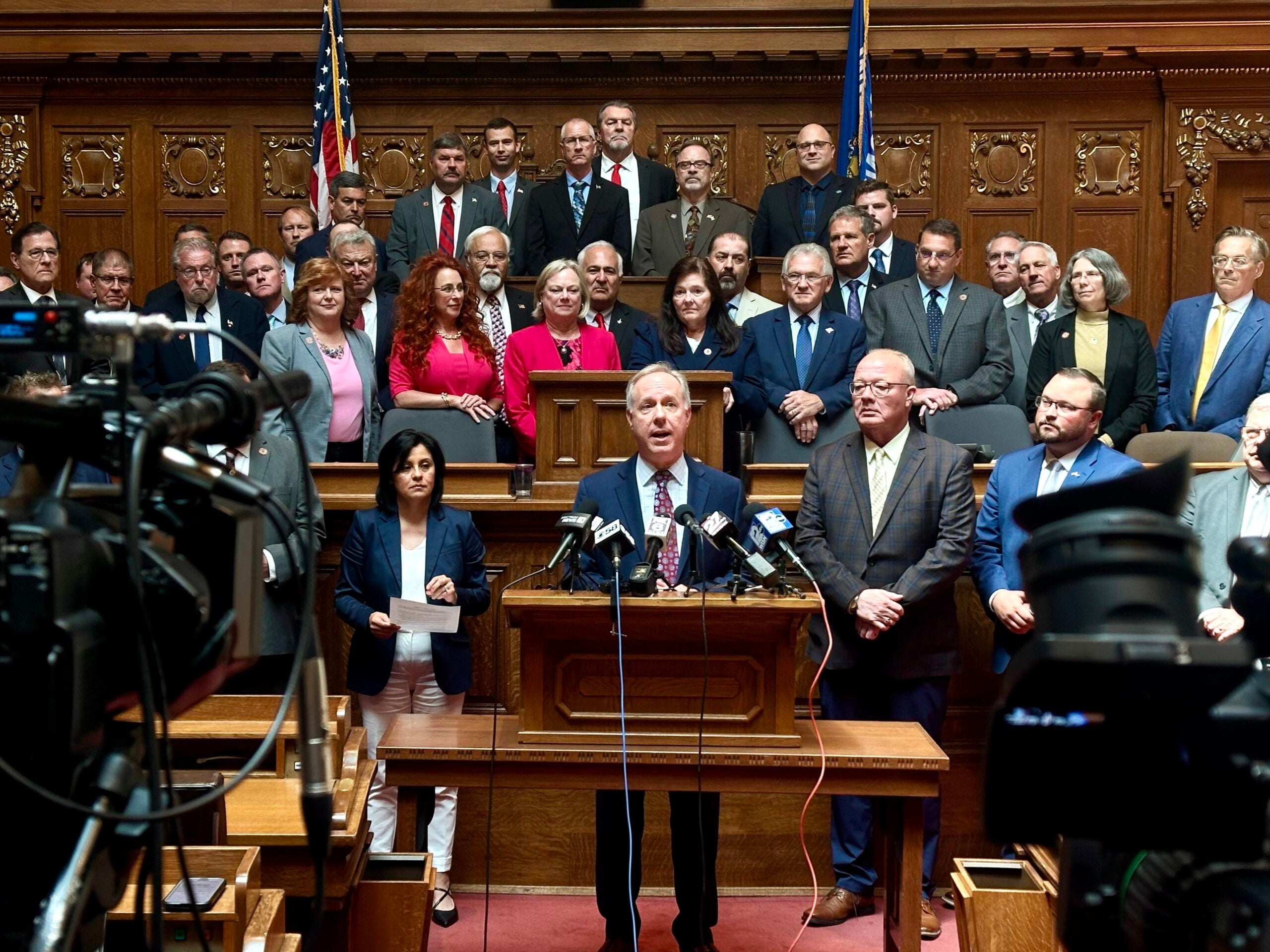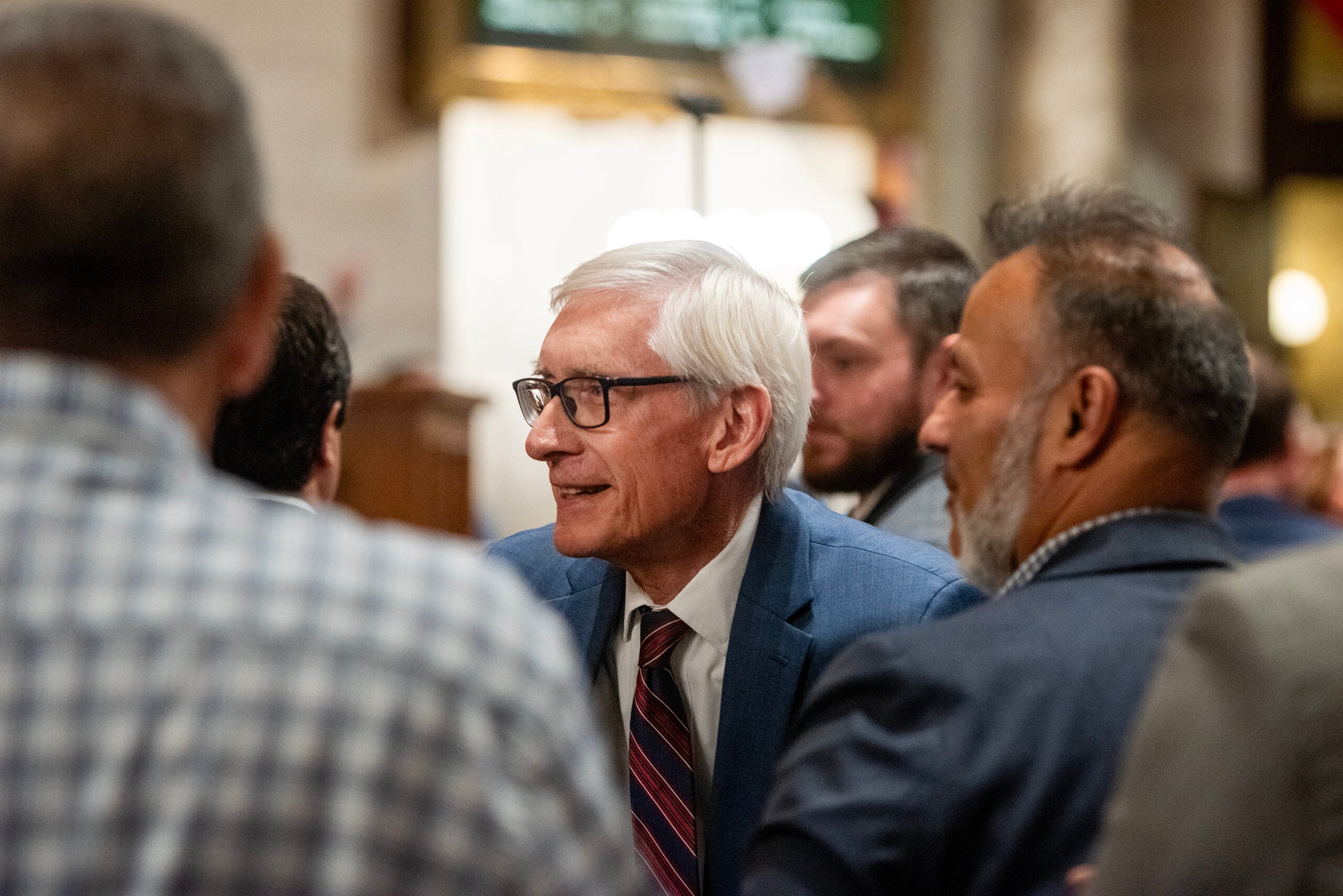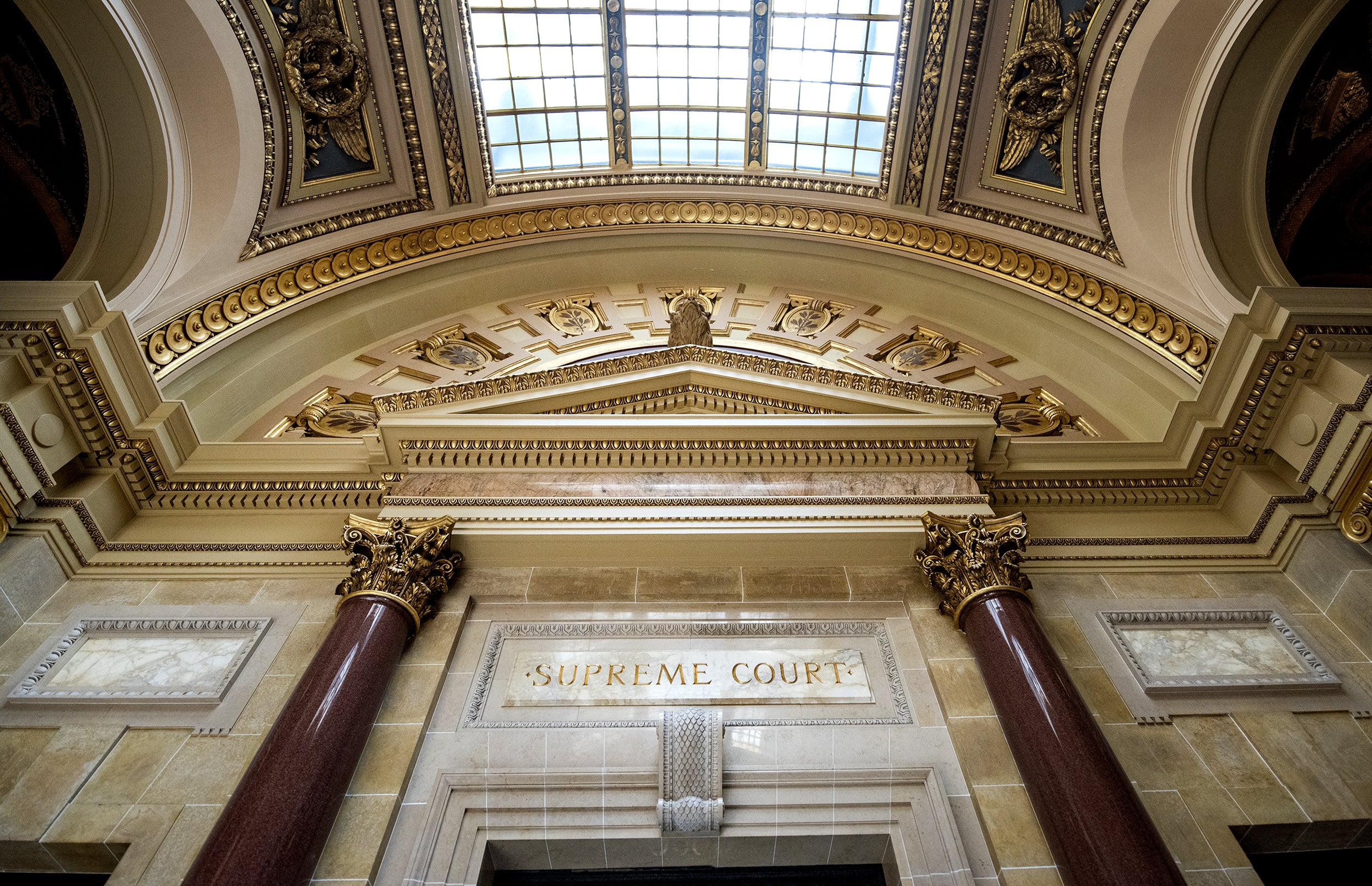A panel led by Republican state lawmakers is getting involved in a dispute over Wisconsin’s new restrictions on indoor gatherings, a step that could potentially block the restrictions or tee up another legal challenge.
Gov. Tony Evers’ administration issued the new restrictions last week, citing a surge in COVID-19 cases and hospitalizations that had turned Wisconsin into one of the nation’s coronavirus hotspots. The restrictions, which went into effect Thursday, are scheduled to last until Nov. 6.
The Legislature’s Joint Committee for Review of Administrative Rules voted 6-4 along party lines Monday to direct Evers’ state Department of Health Services to repackage the order as what’s known as an “emergency rule.” Practically speaking, that would give Republicans who control the Legislature veto power over the order.
News with a little more humanity
WPR’s “Wisconsin Today” newsletter keeps you connected to the state you love without feeling overwhelmed. No paywall. No agenda. No corporate filter.
The restrictions were handed down by DHS Secretary Andrea Palm, whose “Safer at Home” order was struck down by the Wisconsin Supreme Court in May.
Palm’s latest order is more limited than “Safer at Home” and relies on a set of powers for dealing with pandemics that the state Supreme Court left intact. Those powers let DHS secretaries “forbid public gatherings in schools, churches, and other places to control outbreaks and epidemics.”
Still, GOP lawmakers argue the new restrictions are precisely the kind of order the state Supreme Court ruled must get the Legislature’s OK through the rulemaking process.
“This is not a debate on COVID,” said state Sen. Steve Nass, R-Whitewater, who co-chairs the rules committee. “We’re here because the department has broken the law.”
Democrats attacked Republicans for trying to thwart the efforts of Evers to slow the spread of COVID-19 during Wisconsin’s worst days since the pandemic began.
“Unfortunately, all we’ve seen from the Republicans, from those who are in the majority right now, is to have no plan,” said state Sen. Chris Larson, D-Milwaukee. “And as a result, we are left rudderless as a state and infections continue to grow.”
In theory, the Legislature’s emergency rulemaking process could set the stage for the Evers administration and Republicans lawmakers a chance to work out a compromise on public health restrictions.
In practice, the two sides appear so far apart that every dispute appears headed for court.
Already, both parties have brandished advisory opinions from the nonpartisan Legislative Reference Bureau (LRB) to make their case.
In one memo, requested by Republicans, LRB attorney Tamara Dodge said a court would likely find Palm’s order should be “promulgated as a rule,” meaning it would have to be presented to the Legislature.
But in another memo, requested by Democrats, Dodge said the order carried the force of law unless a court ruled it unenforceable, meaning the Legislature could not stop the order by itself.
Assembly Speaker Robin Vos, R-Rochester, sent a letter last week requesting a meeting with Evers. But in that same letter, Vos said the governor’s approach to handling COVID-19 had failed.
Evers sent his own public letter to Vos and Senate Majority Leader Scott Fitzgerald, R-Junueau, Monday, questioning why Republicans had yet to present their own plans.
“Wisconsinites are scared about what this virus means for their loved ones, their businesses, our state economy, and our country’s economy. We desperately need Republicans in the Legislature to start taking this seriously,” Evers said.
The committee’s vote technically begins a 30-day countdown for the Evers administration to develop its order into an emergency rule.
The order came on the same day that a judge ruled against Republicans who were challenging another order by Evers, this one a statewide mask mandate.
Wisconsin Public Radio, © Copyright 2025, Board of Regents of the University of Wisconsin System and Wisconsin Educational Communications Board.

